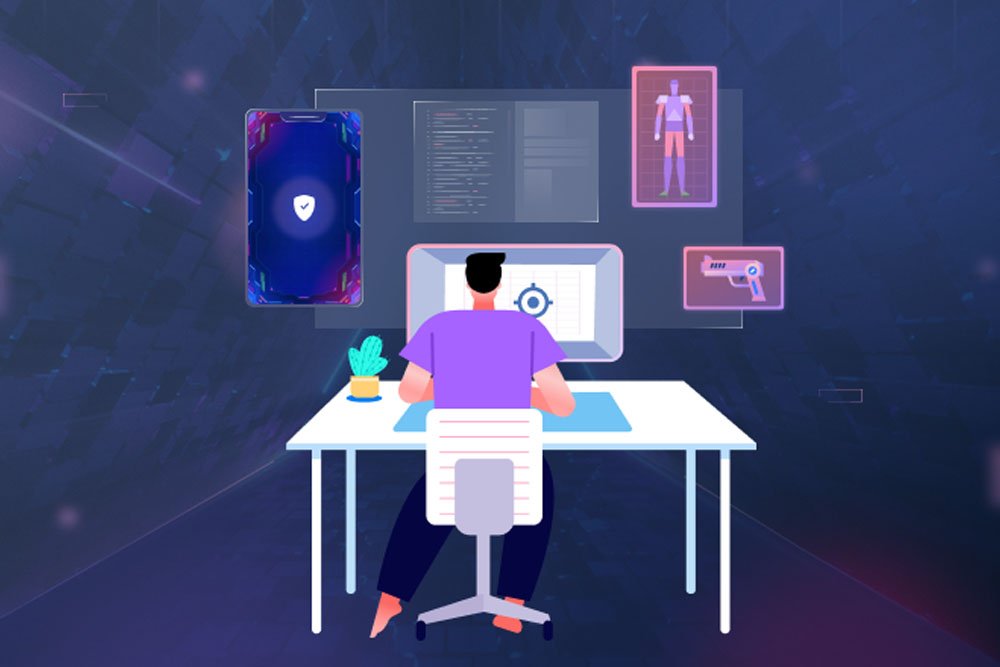Creating a video game is a complex and intricate journey that requires careful planning, creativity, and execution. It is an art form that blends technology, storytelling, and interactive experiences to captivate players and transport them to new and exciting worlds. Whether you dream of creating a sprawling open-world adventure, a fast-paced multiplayer shooter, a thought-provoking narrative-driven experience, or making a game on Roblox, understanding the step-by-step process of game development is essential. This article deals with the various stages of game development, providing aspiring game developers with valuable insights and guidance to navigate the process successfully.
Table of Contents
Conceptualization
Every game has an inspirational spark behind it. During the conceptualization stage, developers engage in brainstorming sessions, sketching out the fundamental elements of the game. This involves defining the game’s genre, setting, characters, and core gameplay mechanics. Having a clear vision and a distinctive selling point is crucial that sets your game apart from others in the market.
Pre-production
Once the game concept is solidified, it’s time to move into pre-production. This stage focuses on planning, organization, and laying the groundwork for the development process. Game designers create detailed documentation, including concept art, storyboards, level designs, and character sketches. Technical requirements, such as the target platform and game engine, are also determined during this phase. Assembling a skilled and dedicated team of artists, programmers, and sound designers is essential to pre-production.
Production
It is where the game truly takes shape. Programmers write code lines to implement the game mechanics, while artists bring the game world to life by creating visual assets such as 3D models, textures, and animations. Sound designers craft immersive audio experiences by composing music and designing sound effects. Effective communication is critical to ensure a cohesive and engaging game.
Testing and Iteration
Once the initial version of the game is developed, it enters the testing and iteration stage. This phase involves rigorous playtesting to identify any bugs, glitches, or imbalances in gameplay. Testers provide valuable feedback on controls, user experience, and overall enjoyment. Developers carefully analyze this feedback and make necessary improvements, continually refining and enhancing the game until it meets the desired standards of quality, performance, and player satisfaction.
Polishing and Optimization
After addressing the issues discovered during testing, the focus shifts to polishing and optimization. This stage involves refining the game’s graphics, sound, and performance to create a polished and seamless experience for players. Artists add final touches, ensuring visual elements are aesthetically pleasing and consistent. Programmers optimize the code and improve the game’s performance across various devices and platforms, striving for smooth gameplay and efficient resource usage.
Release and Post-Production
Once the game is thoroughly polished and optimized, it is ready for release. This stage involves final preparations, including packaging, marketing, and distribution. Developers submit the game to platforms like app stores or game consoles, ensuring all legal and contractual obligations are met. Additionally, post-production efforts focus on ongoing support and updates to resolve issues post-release, guaranteeing a positive player experience and maintaining the game’s longevity.
Mastering the game development process while making a game on Roblox or any other game creation platform is an exciting yet challenging endeavor. By understanding and following the various stages from conceptualization to release, developers can confidently navigate the complexities of game development. Each stage requires dedication, creativity, and effective collaboration to successfully bring a game idea to life. Embrace the process, harness your imagination, and embark on a rewarding journey into the vibrant world of game development.
